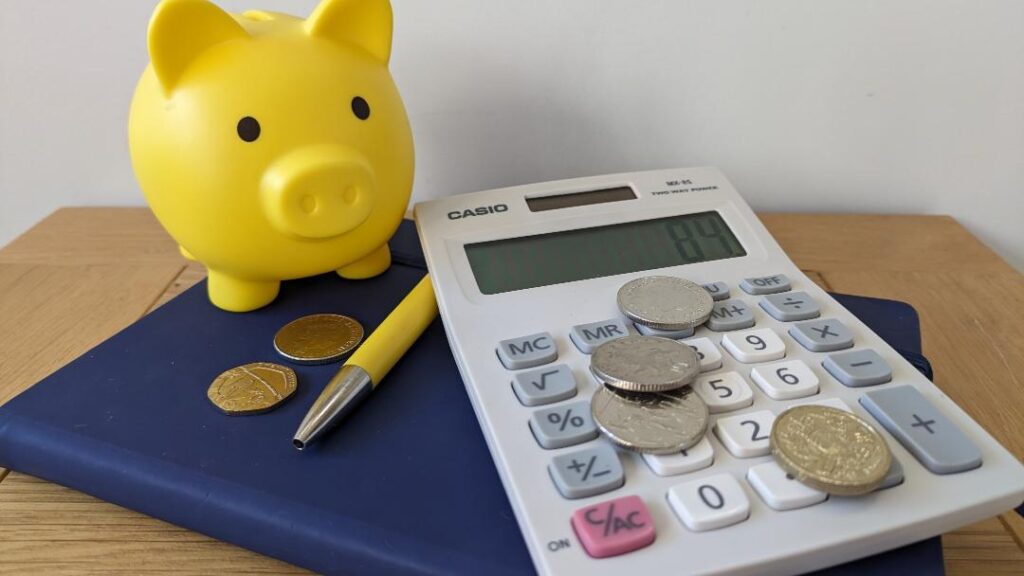The basics of budgeting – fundamental to achieving your financial goals

Having a solid grasp of the basics of budgeting is fundamental in managing your finances effectively. Good budgeting will help you achieve your long-term financial goals and aspirations.
Budgeting involves tracking your income and expenses and creating a spending plan. You’ll need to review your budget regularly and amend it when needed. This will ensure you don’t spend more than you earn.
Budgeting helps you prioritise how you spend your money, allowing you to take control of your finances and build a secure financial future.
Building a budget
Building a budget begins with reviewing your bank statements to understand your current spending habits. Compile a list of your expenses and income for a month, then over a longer period, ideally quarterly and annually. This way you’ll include expenses that you pay quarterly, bi-annually, annually etc. Make a note of the timing of the expenses and income streams. This allows you to make sure there are funds in your account when automatic expenses such as direct debits are paid.
Budgeting steps
- Compile details and timings of all your net income sources (after tax and other deductions).
- Analyse your expenses and the timing of the payments. You may find it useful to group them into categories, such as house and utilities, travel etc.
- Determine your short-term and long-term financial goals, such as saving for a house deposit. Calculate how much you can save and set up automatic transfers into your savings account. Time the transfers so they leave your account just after you have been paid. This removes any temptation to spend the money on other things.
- Compile a list of amounts and timings of expenses that you pay quarterly, annually etc. Calculate the monthly equivalent and set this amount aside every month in a savings pot. When the payment is due, you’ll already have it covered.
- Create your budget by allocating your income to your expenses based on your priorities and financial goals. Assign realistic and achievable budget values to your various spending categories.
- Make use of budgeting apps or spreadsheets to help you compile and manage your budget.
- Make sure you monitor and review your budget regularly and amend it when needed.
- Use preloaded bank cards for expenses such as entertainment. This way, once you have spent your allocated budget, the fun stops – no pain, no gain.
- The hard part – stick to your budget. This requires discipline, tenacity and avoiding buying unnecessary stuff.
Sensible spending
In a world where we are constantly bombarded with advertising, it is increasingly important to develop sustainable and sensible spending habits. Here are some guidelines to help:
- Avoid impulse purchases – always ask yourself do I really need it? Walk away and give yourself 15+ minutes to contemplate. Odds are you won’t buy it.
- Consider swapping branded products for cheaper options. Are branded items worth the extra premium?
- If you are billed quarterly for utilities, set up a monthly direct debit spreading the cost. This makes monthly budgeting easier too.
- Are there changes you can make that will save you money? How about making a packed work lunch over buying a meal deal – £3.50 a day is over £70 a month.
- Do you have any subscriptions that you can cancel, such as a gym membership that you aren’t using?
- Build up a rainy day fund of around 3 to 6 months of your expenses. Having spare funds means you won’t need to rely on credit to cover unforeseen expenses.
- Try to avoid using credit to buy stuff – do like your grandparents did and save up.
- Set up automated transfers and payments to leave your account within a few days after you’ve been paid. This is especially important for savings transfers and rent or mortgage payments.
| Budget Example | Amount |
|---|---|
| Income: | |
| Salary after deductions | 2,000 |
| Expenses: | |
| Mortgage | 600 |
| Council tax | 150 |
| Water rates | 30 |
| Gas | 100 |
| Electricity | 100 |
| Food | 200 |
| Insurance | 50 |
| Car maintenance and fuel | 200 |
| Clothing | 50 |
| Mobile phone & Internet | 40 |
| Entertainment | 150 |
| Savings | 200 |
| Total expenses | 1,870 |
| Remaining money | 130 |
Visit our shop where we have useful budgeting resources:
Bank accounts & budgeting
Many banks offer apps that allow you to categorise spending which is really useful for budgeting. Some of the online disrupter banks like Monzo offer ‘saving pots’ which allow you to split your savings between different saving goals.
Bank overdraft
A bank overdraft is an extension of credit or a temporary loan that allows you to spend more money than is in your account. Some banks may offer a free overdraft facility without charge. Exceeding your overdraft limit may result in interest charges and an overdrawn fee, so only use them for emergencies.
Other resources:
Have a look at Starling Bank’s budget planner, which is a useful resource:
Budget planner: Calculate your budget online for free – Starling Bank – Starling Bank
